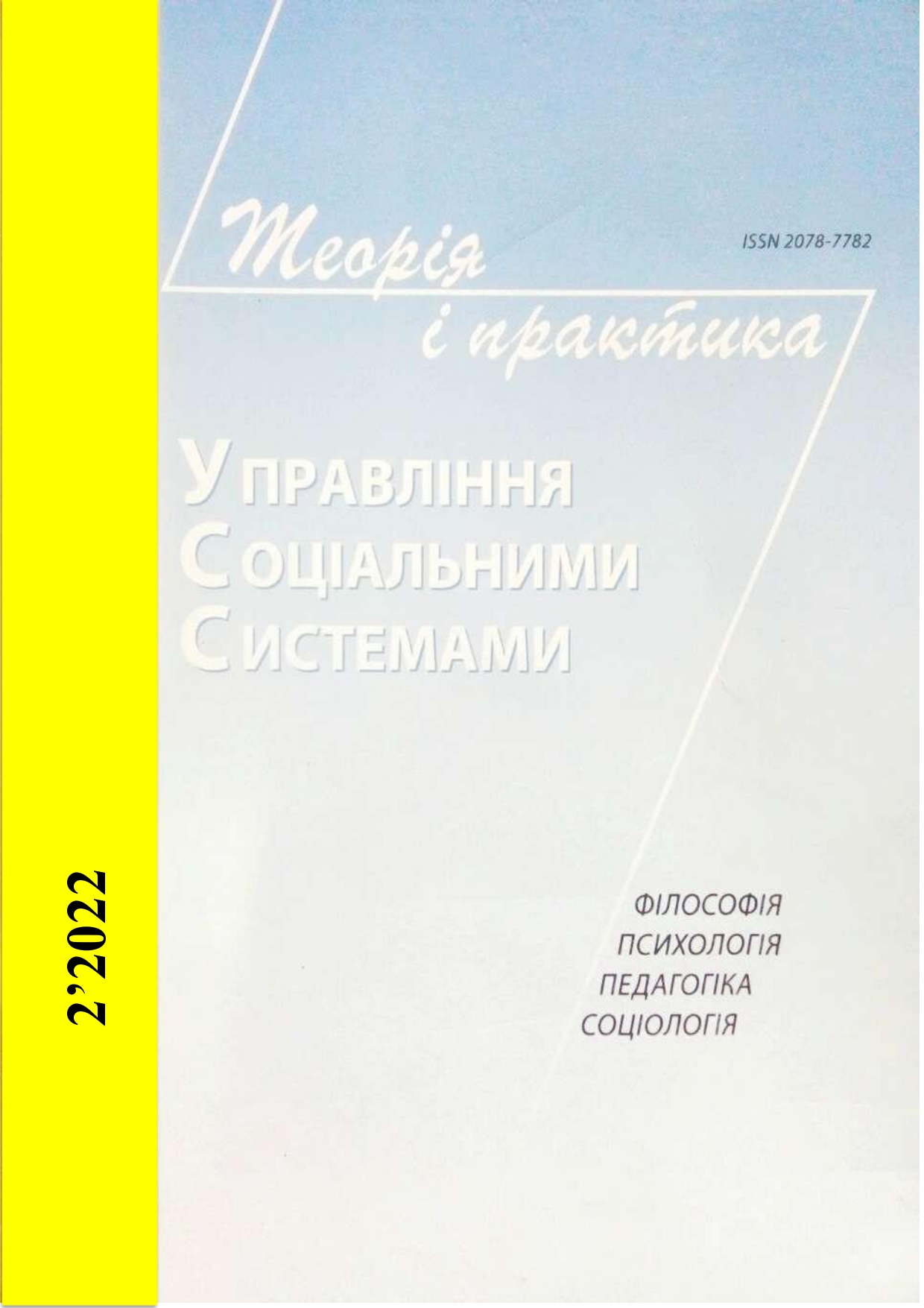ФОРМУВАННЯ ЛІДЕРСЬКОГО ПОТЕНЦІАЛУ ІНТЕЛІГЕНТА
DOI:
https://doi.org/10.20998/2078-7782.2022.2.08Ключові слова:
інтелігент, лідер, лідерські якості, лідерський потенціал, загальна і професійна культура, духовність, суспільна місія, синергетичний ефект.Анотація
Обґрунтовано значення розвитку лідерських якостей представників різних верств інтелігенції як важливої передумови успішного виконання ними своєї суспільної місії. Показано, що належний лідерський потенціал у поєднанні з високою загальною і професійною культурою інтелігента та його багатим духовним світом істотно підвищує можливості і творчої діяльності інтелігента, і з його впливу на розвиток духовності й культури широких верств населення. Проаналізовано сенс понять “інтелігентність лідера” та “лідерство інтелігента”, розкрито їхню роль в процесах суспільного розвитку. Показано цілі, зміст і характер формування рис і якостей лідерства та інтелігентності майбутніх фахівців Розглянуто можливість використання синергетичного ефекту, що виникає в результаті цільового розвитку якостей інтелігентності та лідерства студентів як майбутніх фахівців під час формування їхньої професійної та соціальної компетентності.
Посилання
1. Hura, T. V., Ponomarev, O. S., Romanovsky, O. G. (2021). “Development of leadership potential of future organizers and leaders”, Targeted training of leaders and humanitarian and technical elite. From the experience of the Faculty of Social and Humanitarian Technologies of NTU “KhPI” : monograph / edited by A. V. Kipensky and O. S. Ponomarev. Kharkiv : Madrid Printing House. pp. 91–101
2. Kipensky, A. V., Ponomarev, O. S. (2021). “Development of intelligence of future specialists as a task of pedagogy of the XXI century”, Pedagogy of the XXI century : current status and development trends : a collective monograph. At 2 p.m, part 1. Lviv-Torun : Liga-Press. pp. 195–224
3. Kremen, V. G. (2008). “Educational activity and intellect : problems of formation of national intelligentsia”, Theory and practice of social systems management. no. 2. pp. 3–11
4. Romanovsky, O. G., Ponomarev, O. S., Hura, T. V. (2021). “Efficiency of managerial decision-making in the system of personal qualities of a leader”, Theory and practice of social systems management. no. 1. pp. 71–79
5. Romanovsky, O. G., Sereda, N. V. (2013). “Personality of a modern leader in the aspect of spiritual leadership”, Theory and practice of social systems management. no. 3. pp. 20–27
6. Sokol, E. I., Romanovsky, O. G., Ponomarev, O. S. (2021). “Features of training of elite and leaders in institutions of higher engineering education”, Leader. Elite. Society. no. 1. pp. 5–19
7. Tovazhnyanskyi L. L., Romanovskyi O. G., Ponomarev O. S., Chervanyova Z. O. (2003). “Pedagogy of management” : study. Manual. Kh. : NTU “KhPI”. p. 408
8. Cherkashin, A. I. (2021). “The phenomenon of leadership in higher education : a theoretical analysis of research”, Theory and practice of social systems management. no. 4. pp. 76–85
9. Jaspers, K. (2013), “The spiritual situation of the time”, New philosophy / trans. with him. M. : AST. p. 285
10. Bass, B., Bass, R. (2009). “The Bass handbook of leadership : theory, research and management application”. N.Y. : Simon & Schuster. p.1465
11. Brackett, M. A., Rivers, S. E., & Salovey, P. (2011). “Emotional intelligence : Implications for personal, social, academic, and workplace success”, Social and Personality Psychology Compass, no. 5(1). pp. 88–103
12. Collison, D. (2014). “Dichotomies, dialectics and dilemmas : New directions for critical leadership studies”, Leadership. no. 10(1). pp. 36–55
13. Goleman, D., Boyatzis, R.E., McKee, A. (2013), “Primal Leadership : Unleashing the Power of Emotional Intelligence”, Harvard Business Press, Business & Economics. p. 306
14. Krebs, D. L.; Denton, K. (2005). “Toward a More Pragmatic Approach to Morality : A Critical Evaluation of Kohlbergs Mode”, Psychological Review. no. 112 (3). pp. 629–649
15. Mayer, J. D., Salovey, P., & Caruso, D. R. (2008). “Emotional intelligence : New ability or eclectic traits?”, American Psychologist, no. 63(6). p. 503–517
16. Sucher, S. J. (2007). “The moral leadership : Challenges, tools and insights”. p. 264
17. Zaccaro, S. J., Kemp, C., Bader, P., Antonakis, In J., Cianciolo ,A. T. & Sternberg, R. J. (eds.) (2004). “Leader traits and attributes”, The nature of leadership Thousand Oaks, CA : Sage. pp. 101–124

##submission.downloads##
Опубліковано
Номер
Розділ
Ліцензія
Авторське право (c) 2022 Тетяна Гура, Олександр Пономарьов

Ця робота ліцензується відповідно до Creative Commons Attribution-NonCommercial-NoDerivatives 4.0 International License.
Автори, які публікуються у цьому журналі, погоджуються з наступними умовами:- Автори залишають за собою право на авторство своєї роботи та передають журналу право першої публікації цієї роботи на умовах ліцензії Creative Commons Attribution License, котра дозволяє іншим особам вільно розповсюджувати опубліковану роботу з обов'язковим посиланням на авторів оригінальної роботи та першу публікацію роботи у цьому журналі.Автори, які публікуються у цьому журналі, погоджуються з наступними умовами:
